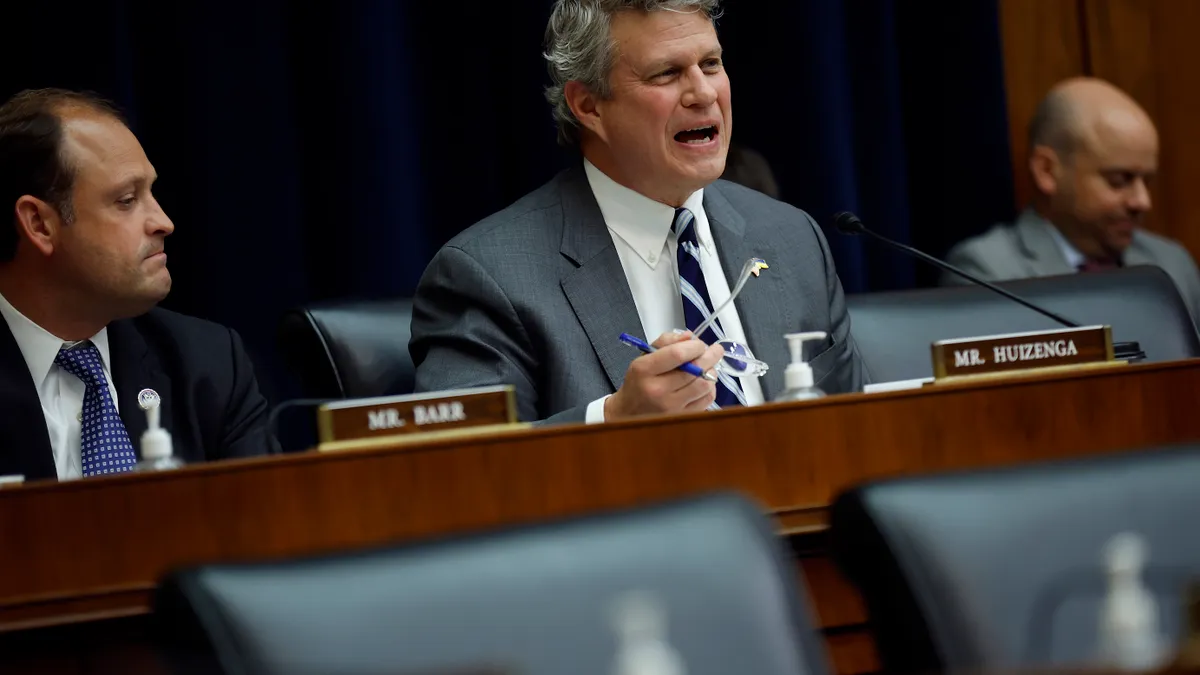Big banks have offered support for the Federal Reserve’s proposal to extend the operating hours of the Fedwire Funds Service and the National Settlement Service in comments submitted this month, but smaller rivals bemoaned its potentially negative impact.
The proposal, made by the Fed in May, would increase the operating hours of its two big-value payments services, namely the Fedwire Funds Service and the National Settlement Service. While the proposal would extend the hours to just short of all-day for now, the Fed’s staff has contemplated around-the-clock services too. “While this proposal is focused on an expansion to 22x7x365, an expansion to full 24x7x365 operating hours for the Fedwire Funds Service and NSS remains a consideration for the future,” the April 15 Fed memo said.
The proposal is seen by the biggest U.S. banks, and some large derivatives exchanges, as a smart way to increase the efficiency of the U.S. payments systems, according to some of the roughly 140 comments filed by the Sept. 6 deadline. But to small community banks and credit unions, the proposal has prompted concerns about increased labor and technology costs; more fraud threats and a competitive disadvantage relative to larger rivals.
Executives at small banks practically begged the Fed not to proceed with its proposal.
“Pls do not approve of working weekends / holidays...for the sake of sanity and fellowship of mankind,” wrote Roger Anderson, a senior wire transfer specialist at Broadway National Bank in San Antonio. “I have a life outside of work,” he said, asking rhetorically about what comes next: “working after I am dead?”
Anderson’s tongue-in-cheek comments reflect the concerns of executives and staff at small banks and credit unions that have limited resources, both in terms of technology and employees, for handling payments beyond the typical workday.
“To support Fedwires, you need two back-office individuals to process, one to enter one to verify,” wrote Monica Sena, an assistant vice president of electronic payments at U.S. Eagle Federal Credit Union in Albuquerque, New Mexico. “Also, separation of duties would mean a branch employee would also be required. This would mean having staff on hand to process an occasional wire that might come in.”
She added: “The fact that this is even a consideration is crazy.”
The smaller financial institutions also argued it would be difficult to keep their prices reasonable for customers if they were forced to spend on expanding their operations. While some acknowledged that institutions can opt out of the expanded Fed payment services, they said they feared being at a competitive disadvantage to their larger bank rivals if they don’t participate.
A spokesperson for the Fed declined to comment on the central bank’s next steps for the proposal.
Typically, after the board proposes a regulation and receives commentary, it reviews the feedback before issuing a final regulation at an unspecified time.
“The time it takes for the Board to consider the comments and issue a final regulation depends on many factors, including the number of comments received and the complexity of issues involved,” the Fed’s website says.
JPMorgan Chase, Citi, Bank of America, State Street and BMO were among banks that wrote to the Fed to support the proposal.
“We consider the Proposal to be an appropriate step to enable seamless U.S. dollar (“USD”) payments processing in response to rapidly changing market conditions and demand expressed by U.S. and international customers,” Debopama Sen, Citi Services’ head of payments, wrote in a Sept. 6 comment letter to the Fed.
Sen noted instituting the expanded hours would “strengthen the role” of the U.S. dollar as the “preferred currency for the settlement of global trade obligations and mitigate the risk of disintermediation of the USD as the main currency of choice for the execution of international settlements.”
Many banks, including JPMorgan, also expressed support for the Fed’s timeline for expanding the hours of operation, namely implementing the change “no sooner than 2027, two years after the migration of the Fedwire Funds Service to the ISO 20022 standard.”
Major derivative trading exchanges, including CME Group and the Options Clearing, also weighed in to support the proposal. Specifically, Suzanne Sprague, a CME senior managing director, wrote that the company agreed the increased operating hours “could improve the safety and efficiency” of the systems.
Members of Congress have also urged the Fed to follow through on the proposal. A bipartisan group, including House Financial Services Committee Vice Chair French Hill, R-AR, wrote to the Fed in July to prod it to speed ahead with the proposal.
“Our goal is that the Fed take the progress that they’ve made on faster payments and improving the payment infrastructure, and advance the ability to go 24 hours a day, seven days a week, sooner than a date in 2027,” Hill said in an exclusive interview with Payments Dive at that time.
Then this month, a group of senate Democrats made a plea, as well.
“For most Americans it makes no sense that they must wait for their money to be deposited in their bank accounts,” Senate Banking Committee Chair Sherrod Brown, D-OH, and colleagues wrote in a Sept. 11 letter. We “urge you to adopt the policy change outlined in the Board’s proposal and look for ways to expand settlement services to operate 24 hours a day, 7 days a week, 365 days a year.”
The proposal has also won the backing of at least one consumer advocacy group, The National Consumer Law Center, which submitted a comment “on behalf of its low-income clients.” The broader availability of the payment systems would let consumers avoid using commercially available payment tools it considers more problematic, particularly those that have been plagued by fraud, the NCLC said in its comment.
“The expansion of the NSS will be a boon to both consumers and businesses, providing a safer alternative to other faster payment platforms like Venmo, PayPal, the Cash App, or Zelle,” the NCLC’s Sept. 6 letter contended.
Still, the organization said the Fed must guard against fraud threats.
“If the Federal Reserve Board decides to expand the operating hours for Fedwire, we urge it to also take measures to prevent and address fraud,” the NCLC said.



















